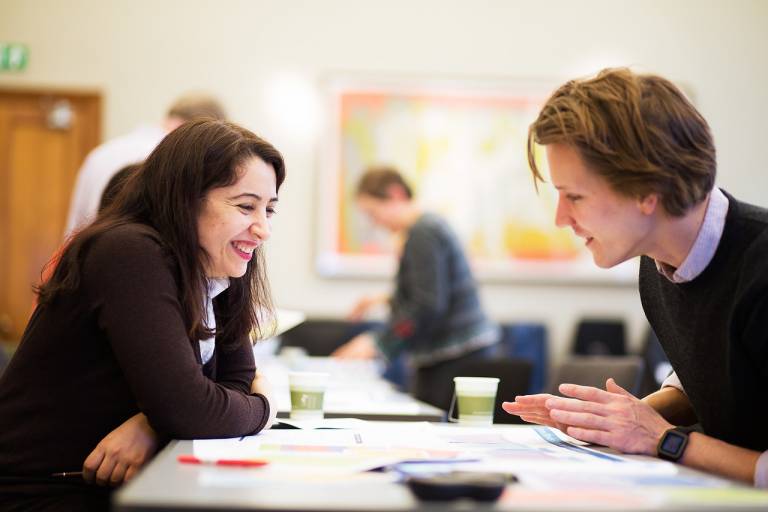Online: Division of Psychiatry seminar: Dr. Michael Moutoussis, UCLH
01 April 2020, 2:00 pm–3:00 pm

This even will now be available online via Zoom.
This event is free.
Event Information
Open to
- All
Availability
- Yes
Cost
- Free
Organiser
-
Division of Psychiatry
Title: How computational psychiatry can listen to clinicians' and other stakeholder's needs to really become useful
Presenter: Dr. Michael Moutoussis, Clinical lecturer in Neuroscience, UCL & Honorary consultant psychiatrist in psychotherapy, Neuropsychiatry dept., UCLH
Date: 1st April 2020
Time: 2-3pm
Join Zoom Meeting: https://ucl.zoom.us/j/373510807 Meeting ID: 373 510 807
Computational psychiatry is a very exciting branch of research, about 15 years old in its current incarnation. It represents an integrative approach to psychopathology, which draws on cutting edge advances in neuroscience, computational biology, psychology, machine learning and other fields. However, despite great promise, it has yielded few clinically useful insights. I argue that in order to really become clinically useful, the gifted teenager which is computational psychiatry needs to engage with treatment needs at the coal-face of real-world clinical practice. That is, as well as keeping alive its unique visionary project to revolutionize psychiatric pathophysiology. This means heeding much more the voices of stakeholders, and not just service-users. Crucially, it needs to ask front-line mental health professionals, but also psychological therapy, psychopharmacology and other mental health researchers what is really needed here and now. This is likely to include a renewed focus on recovery, empowering patients -- not just clinicians -- to make psychopharmacological, psychological and socioeconomic decisions and articulate needs. After giving examples of fascinating computational psychiatry research, I will sketch some ideas about how computational psychiatry can better help clinicians, with an emphasis on therapy. However, I will also describe the genuine difficulties in collaborating across the mental health -- basic science chasm, and challenge the audience to help develop fora, new forms of co-production, communication, a new language even, to engage with computational psychiatry and help it contribute to incremental, practical clinical progress.
 Close
Close

